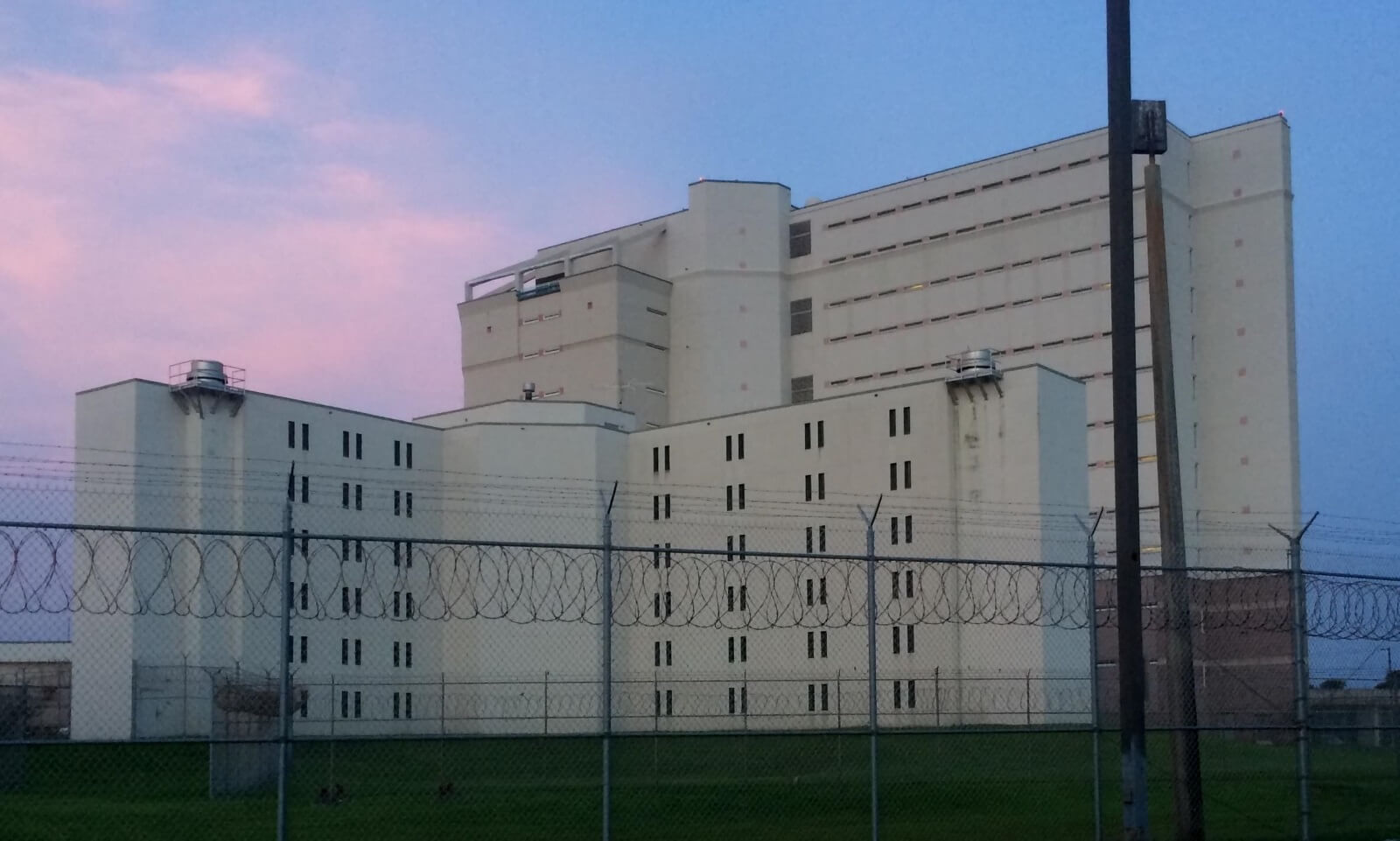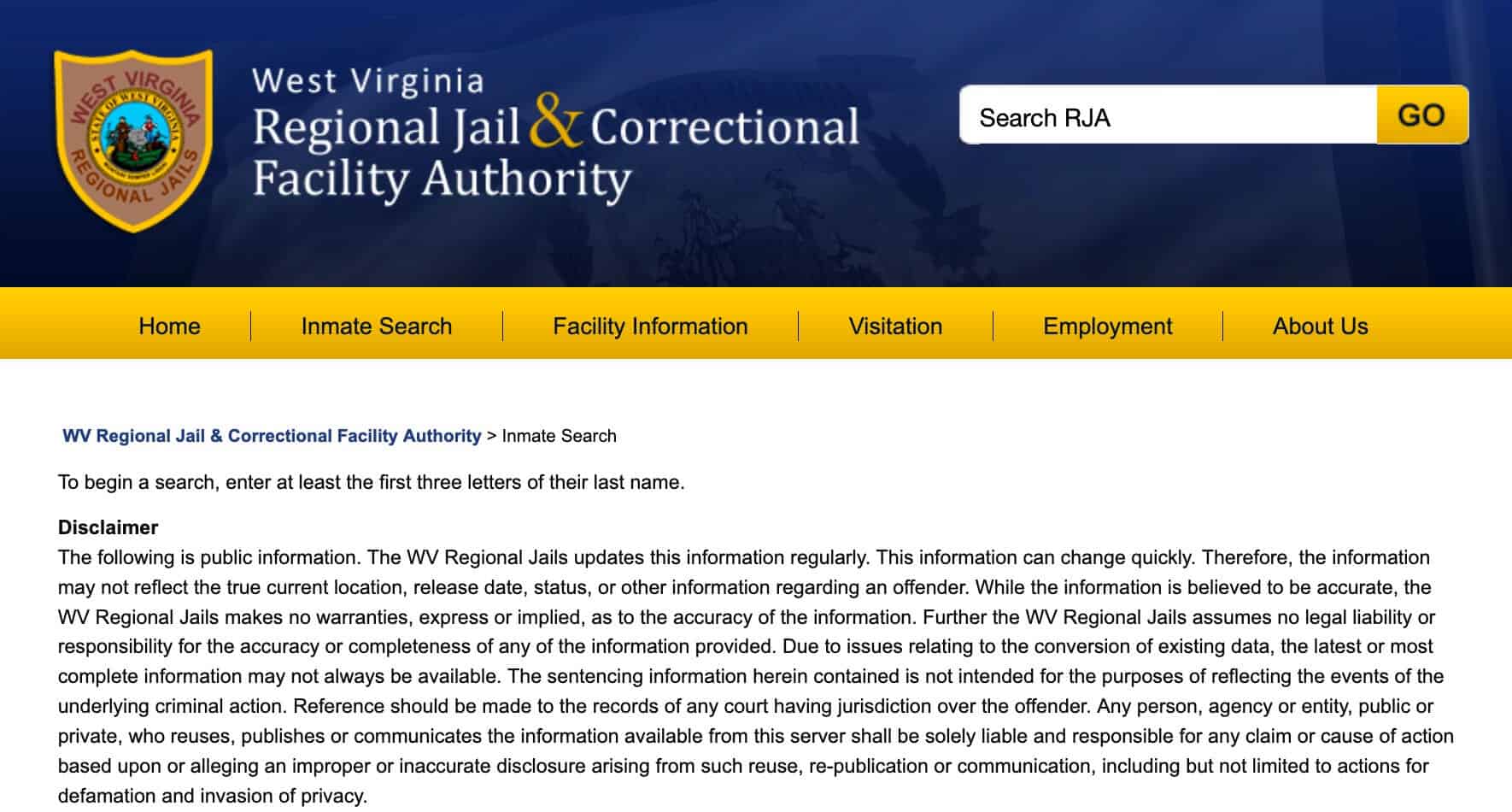West Virginia Correctional Facility Inmate Search: A Comprehensive Guide
Looking for information on how to conduct a West Virginia correctional facility inmate search? You're in the right place. Whether you're a concerned family member, a legal professional, or someone just trying to find answers, this guide will walk you through everything you need to know. The process might seem a bit overwhelming at first, but don't worry—we've got you covered.
When life throws you into situations where you need to locate someone in the West Virginia correctional system, it can feel like navigating a maze. That's why we're here to break it down step by step. This isn't just about finding an inmate; it's about understanding the system and ensuring that you're using the right resources.
Our goal is to provide you with actionable insights and practical advice. Whether you're dealing with a personal matter or professional inquiry, this article will help you navigate the complexities of inmate searches in West Virginia. So, let's dive in and make sense of it all!
Read also:Northport Funeral Home Cremation Your Guide To Honoring Loved Ones
Understanding the West Virginia Correctional System
Before we jump into the nitty-gritty of searching for inmates, it's essential to understand the structure of the West Virginia correctional system. The state operates several facilities, each with its own rules and procedures. This section will give you a snapshot of what to expect.
Types of Correctional Facilities in West Virginia
West Virginia has a mix of federal and state facilities, each designed to house inmates based on their crimes and sentences. Here's a quick rundown:
- Federal Prisons: These are for inmates convicted of federal crimes.
- State Prisons: For individuals convicted of state-level offenses.
- Local Jails: Often used for short-term detentions or pre-trial holds.
Understanding the differences between these facilities is crucial because it affects how and where you conduct your search.
Why Conduct a West Virginia Correctional Facility Inmate Search?
People search for inmates for various reasons. It could be out of concern for a loved one, a legal obligation, or even curiosity. Whatever your reason, knowing the "why" can help you focus your efforts.
Common Reasons for Searching
Here are some of the most common reasons people conduct inmate searches:
- Family Concerns: Wanting to check on a relative's well-being.
- Legal Purposes: Gathering information for a case or legal proceeding.
- Personal Curiosity: Simply wanting to know more about someone's situation.
Regardless of your motivation, having a clear purpose can streamline your search process.
Read also:Brownsville Police Department Mugshots Your Ultimate Guide
How to Conduct a West Virginia Correctional Facility Inmate Search
Now that we've covered the basics, let's get into the meat of the matter—how to actually perform an inmate search. The process involves a few key steps, and we'll walk you through each one.
Step 1: Gather Information
Before you start searching, you'll need some basic details about the inmate. This includes:
- Full name
- Date of birth
- Case number (if available)
Having this information will make your search more accurate and efficient.
Step 2: Use Official Resources
West Virginia offers several official tools to help with inmate searches. The West Virginia Division of Corrections and Rehabilitation (DOCR) provides an online portal where you can input the inmate's details and find their location.
TIP: Always verify the information you find with official sources to ensure accuracy.
Step 3: Explore Third-Party Services
While official resources are reliable, third-party services can sometimes offer additional features or easier interfaces. However, be cautious about privacy and accuracy when using these services.
Understanding Inmate Rights in West Virginia
It's important to remember that inmates retain certain rights, even while incarcerated. Understanding these rights can give you a better perspective on the situation.
Key Rights of Inmates
Here are some of the fundamental rights that inmates in West Virginia enjoy:
- Right to Communication: Inmates can communicate with family and legal representatives.
- Right to Medical Care: They have access to necessary medical treatment.
- Right to Legal Representation: Inmates can consult with attorneys.
Knowing these rights can help you advocate for or support an inmate effectively.
Challenges in Conducting an Inmate Search
While the process might seem straightforward, there are challenges you might encounter. These include outdated databases, privacy restrictions, and incomplete information.
Overcoming Common Challenges
Here are some tips to help you navigate these obstacles:
- Double-Check Details: Ensure all the information you input is accurate.
- Use Multiple Resources: Cross-reference data from different sources for better accuracy.
- Stay Persistent: Sometimes, persistence is key to finding the information you need.
With a bit of patience and perseverance, you can overcome most hurdles in your search.
Data and Statistics on West Virginia Correctional Facilities
To give you a clearer picture, here are some statistics about the West Virginia correctional system:
As of the latest data, West Virginia houses approximately 6,000 inmates across its facilities. The average length of stay varies depending on the offense, but most inmates serve between 2 to 10 years.
These numbers highlight the importance of having a robust system for tracking and managing inmates.
Impact of Inmate Population on the System
The growing inmate population poses challenges for the state, including overcrowding and resource allocation. Understanding these dynamics can help you appreciate the complexities of the system.
Legal Considerations in Inmate Searches
When conducting an inmate search, it's crucial to be aware of the legal implications. Privacy laws and regulations govern how information can be accessed and used.
Key Legal Points to Remember
Here are some legal considerations to keep in mind:
- Privacy Laws: Be mindful of how you use the information you find.
- Access Restrictions: Some details may not be available to the public.
- Legal Advice: If in doubt, consult a legal professional for guidance.
Staying informed about these legal aspects can prevent potential issues down the line.
Conclusion and Next Steps
Conducting a West Virginia correctional facility inmate search doesn't have to be a daunting task. By following the steps outlined in this guide, you can efficiently locate the information you need. Remember to use official resources, respect privacy laws, and remain persistent in your efforts.
Now that you're equipped with the knowledge and tools, it's time to take action. Whether you're searching for a loved one or gathering information for legal purposes, this guide has provided you with the foundation to succeed.
Don't forget to share this article with others who might find it useful. And if you have any questions or feedback, feel free to leave a comment below. Together, let's make navigating the West Virginia correctional system a little easier for everyone!
Table of Contents
- Understanding the West Virginia Correctional System
- Why Conduct a West Virginia Correctional Facility Inmate Search?
- How to Conduct a West Virginia Correctional Facility Inmate Search
- Understanding Inmate Rights in West Virginia
- Challenges in Conducting an Inmate Search
- Data and Statistics on West Virginia Correctional Facilities
- Legal Considerations in Inmate Searches
- Conclusion and Next Steps


